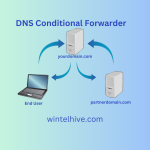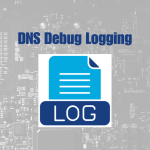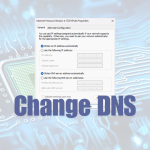Have you ever seen IP address 169.254.X.X appearing on your computer network card. Full form of APIPA is automatic private IP addressing. When a machine is configured to obtain IP address from a DHCP server and it can not find any DHCP server on the network it will obtain a self-assigned automatic address. This feature is available in IPV4. Below diagram explains the process of such IP assignment.

If you don’t know about DHCP (dynamic host configuration protocol) we suggest you to have a look on “What is DHCP Server“.
When a machine obtains 169.254 IP address
- There is no DHCP server installed in the network. A newly connected machine does the usual broadcast to obtain IP address. When there is no response and request timeout. Automatic IP address ranging from 169.254.0.1 to 169.254.255.254 is assigned by default.
- DHCP server is there but not reachable because of network or security settings. We suggest to check port 67 and 68 for smooth DHCP communication from the DHCP client to DHCP server.
- DHCP server is available but all the IP address pool is fully used and there is no IP left behind for new device assignment.
Why and when to use APIPA
- In a small officer setup (that does not have DHCP server), all the workstations will obtain automatic IP address (of same series 169.254.X.X with a subnet 255.255.0.0. As a result you don’t need to assign IP addresses to each and every machine even in the absence of DHCP server.
- If of BYOD (bring your own devices like mobile phones) or IoT (internet of things) are heavily used in your infrastructure, all the devices become plug and play.
- If you have setup a disposable temporary network, using APIPA could be a very good choice without much administrative effort.
- It can be very helpful in virtualization test labs or educational environments.
Why and when not to use APIPA
- A issue with automatic 169.254 IP address is, its not routable. Means devices does not have a gateway. As a result any machine having such IP address can communicate within same subnet only.
- Another problem with this is a machine takes some time to generate this automatic address which causes an initial delay and IP assignment process is bit slow.
- Incase of WAN automatic IP address can not be used. This is available for LAN usage only.
- In a medium to large size office we always suggest to use DHCP server for proper IP assignment. You can check “Install and Configure DHCP Server“. A step by step guide.
- You can use static IP address if you have limited number of machines.
Steps involved in Automatic IP assignment
- A new machines is connected with wired or wireless network with a dynamic IP address setting. It initiates a broadcast request called DHCP discovery.
- There is no response from any DHCP server.
- When request timeout as fallback, the client devices generates a random IP address 169.254.X.X series along with subnet mask 255.255.0.0
- Machine uses ARP to detect any IP conflict with another device on the LAN. If conflict is detected, it generates another random IP from the same series and assigns to itself after rechecking the Ip conflict.
- Finally a lease time is set for this automatic IP address. Generally its 24 hours.
Common Issues and Fix
if you observe unexpected APIPA address in you network. Followings are the common points you need to check for troubleshooting,
- Check with the DHCP server administrator if the DHCP servers is up and running.
- DHCP scope has enough IP address in the pool for new deices.
- Check with network team if server is reachable.
- If you are using any DHCP relay agent in the network, check that its well configured.
- In most of the cisco devices “ip helper-address” acts as DHCP relay agent. Check with network team if its well configured.
- Check the network card configuration and TCP/IP settings
- Also remember to update or reinstall network card drivers.
Disable 169.254 series IP addressing
APIPA address is enabled by default, however its worthy to disabled. In some organization information security policy discourage the use of automatic private IP address. If that’s the case with you go to following registry key,
“HKEY_LOCAL_MACHINE\SYSTEM\CurrentControlSet\Services\Tcpip\Parameters\Interfaces”. Select the appropriate network interface card. Created a new DWORD value named “IPAutoconfigurationEnabled”. Assign value 0 to it. Restart your computer.
Frequently Asked Questions (FAQ)
Answer is no. APIPA IP address do not have any network gateway. So it is not routable.
IP address ranges between 169.254.0.1 & 169.254.255.254. System can pick any random IP within this range.
Subnet mask is always 255.255.0.0 for automatic private IP address.
Check your device and network. Disconnect and reconnect it. Restart your (home) router. In corporate networks contact your IT support team.
Yes. It is for Microsoft Windows only. Other operating system like Linux, Unix and MAC does not support APIPA.
APIPA address operates within same subnet only. There is not DNS, wins or default gateway. So in very simple network, yes it will be able to communicate with other devices. But practically without gateway and DNS its is very difficult to use corporate services. So it is not a wise approach to APIPA.
-
Install and Configure DHCP Server
Install and configure DHCP server is a skill that every windows server administrator must have. DHCP (Dynamic host configuration protocol)…
-
What is DHCP Server?
Dynamic host configuration protocol (DHCP) is widely used by Systems and network administrators for the automatic IP assignment to the…








Leave a Reply